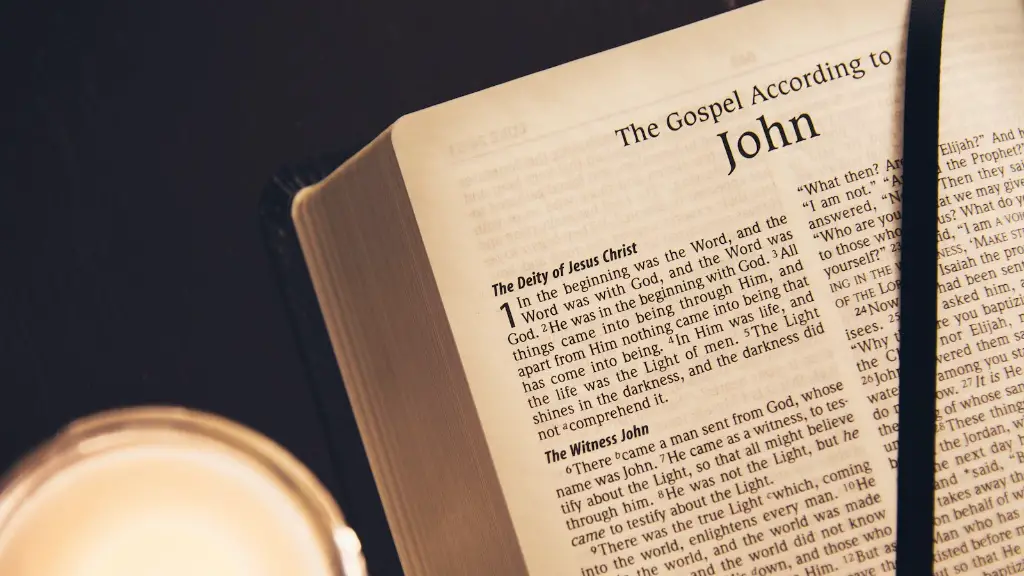The account of the birth of Jesus is found in the Bible’s New Testament. According to the Bible, Jesus was born in Bethlehem in the time of King Herod, a cruel and oppressive ruler of the Jews. It is believed that Jesus was conceived by the Holy Spirit when Mary, Joseph’s fiancée, was still a virgin. Luke 2:7 states that “she gave birth to her firstborn son, wrapped him in strips of cloth and placed him in a manger” with no crib for a bed. Matthew 2:1 says that the birthplace of Jesus was “the town of Bethlehem in Judea,” and the Gospel of Luke reveals his family’s origin as Nazareth.
In the possible events surrounding the birth of Jesus, the Bible mentions a census, which possibly caused Joseph to travel to his ancestral home of Bethlehem. There is also a reference to shepherds coming from the nearby hills to offer their assistance and worship. Later, three wise men from the east followed a star to Christ’s birthplace, and offered him gold, frankincense and myrrh.
The Bible account of the birth of Jesus helps scholars and theologians to explore the possible ways of understanding the events surrounding his birth. According to Joseph Cardinal Ratzinger, now Pope Benedict XVI, “The Evangelists did not intend to write a systematic or chronological biography of Jesus…Rather, through their words and images, they wanted to recall and proclaim what God had done in Christ.”
Theologian George Weigel also tells us that, to understand the meaning of Jesus’ birth, we should look at it from a historical perspective. He says that the “even which makes the Gospels the Gospels is not the birth of Jesus but the death and resurrection of Jesus.”
The birth of Jesus holds deep importance within Christianity and can still influence people’s feelings of awe and wonder today. Some Christians see it as a potent symbol of God’s power to bring hope and joy into a world of despair and suffering. Others believe that it serves as a reminder of the sacrifice that Jesus made for us. For example, His willingness to leave the comfort of Heaven and come to us as a baby to pay the ultimate price.
In a theological sense, the birth of Jesus can signify the moment when God’s plan of salvation and redemption was initiated. As Catholics, we understand the Incarnation, which is the belief that Jesus was both fully divine as God and fully human as a baby and man.
The Manger Scene
The Bible tells us that Jesus was born in a manger and this has been depicted in Nativity scenes all over the world, from church sets to front yards during Christmas. The symbolism of this is extensive and can be interpreted in various ways.
One interpretation is that it serves as a reminder of the mercy and humility that Jesus showed to humanity, His willingness to inhabit a lowly manger to save us from our sins. He could have chosen any other place to be born, instead, choosing to obey His Father’s will in a humble setting. It also brings to mind the phrase “the Word made flesh” as we consider Jesus as the embodiment of truth and salvation.
The manger is also seen as a symbol of the Incarnation. It shows Jesus’ willingness to break the laws of nature and enter into our world as an infant. By choosing to be born in a manger, He brought human and divine together and allowed us to experience God’s love through our own earthly body.
The manger scene represents the ultimate emotion of Christmas, which is that God loves us so much that He sent His own son to dwell among us as a helpless infant. It is a powerful reminder of the relationship between God and man and speaks volumes of the mercy, love and grace of the Lord.
The Star Of Bethlehem
In the Bible, we are told that a star appeared in the night sky when Jesus was born, which has become known as the Star of Bethlehem. It is believed that this star was an astronomical sign of the coming of Jesus Christ, and it is a potent symbol of faith and hope.
Many Christians see the star as a symbol of the power and glory of God, showing to mankind that the path to salvation has been laid out. It can also be interpreted as a sign of grace and mercy, giving a hopeful reminder to mankind that the salvation that Jesus brings will not just be for the Jews, but for all mankind.
The Star of Bethlehem can be seen as a symbol of the promise of Easter and the hope of eternal life, as the star showed the world that the son of God had been born, and that salvation was born with him. It is a powerful reminder of the promise of hope, redemption and love that was made to mankind when Christ was born.
The Star of Bethlehem is a powerful symbol of the unwavering faith that Christians have in the Lord Jesus, and a reminder to always trust in Him and look to Him for strength, guidance and healing. It is an inspiring sign of the love and mercy that God has bestowed upon mankind.
The Virgin Mary In The Bible
In the Bible, Mary plays a significant role in relation to the birth of Jesus. She was chosen to be the mother of the son of God and, according to Scripture, willingly accepted this calling. Mary’s faith, acceptance and obedience are a great example for all of us.
The Gospel of Luke tells us that the angel Gabriel visited Mary to announce the birth of Jesus. He told her that she will conceive and bear a son, and that she should name him Jesus. Mary was surprised and humbled by the news and gave her obedience to the Lord’s will. She then asked how this could be since she was a virgin. The angel explained to her that the Holy Spirit will come upon her and overshadow her, and that she should not be afraid.
Mary’s acceptance of God’s will despite her fear serves as an example of servitude and trust in the Lord. Her faith and obedience demonstrate her extraordinary courage and strength in the face of adversity. The Bible provides her as a role model to all believers, a faithful woman whose example we should strive to follow.
Mary also teaches us the importance of trusting God and obeying His will no matter what. Despite her fear and confusion, Mary was willing to trust in the Lord and accept His will. This example of faith is a reminder to us that even when we don’t understand what God is trying to tell us, it is important for us to trust Him and obey.
The Implications Of The Birth Of Jesus
The birth of Jesus is a source of hope and joy for believers, especially during Christmas. It serves as a reminder of God’s mercy and love, and of His commitment to His people. Christmas marks a blessed time of celebration and joy, and the birth of Jesus serves as a reminder of the promises that we were given when He was born.
The birth of Jesus also has a great deal of redemptive significance. The Bible teaches that our salvation was made possible through Jesus’ death and resurrection, but it begins with His birth. Even before He came to this world, Jesus had already determined to come to us and live among us in order to save us. His coming fulfilled a great promise made by God to His people and showed His faithfulness to His beloved.
The birth of Jesus also serves as a reminder of His power and glory. It symbolizes the power of God to bring hope, life and joy into a world of darkness and despair. It helps us to see that even in the lowest, darkest and most difficult of times, God will be with us. He will not forget us, He will remain faithful and bring us what only He can give.
The birth of Jesus can also be seen as an example of how we should live and treat others. As Christians, we should strive to live our lives with humility, mercy and grace, and demonstrate the same love, compassion and kindness that Jesus showed when He came to earth.
The Purpose Of The Birth Of Jesus
The birth of Jesus has both a spiritual and practical purpose, but ultimately its purpose lies in the demonstration of the Lord’s love and grace. Jesus came to bring us salvation, and the birth of Jesus serves to remind us of God’s promise and of His commitment to us.
The Bible tells us that “the Word became flesh and dwelt among us” (John 1:14). This was done so that we can gain a greater understanding of the love, mercy, and grace of the Lord. Jesus showed us His unconditional love, and the birth of Jesus serves to remind us of this.
The purpose of the birth of Jesus also includes the lesson of humility. When Jesus was born, He was born in a lowly manger and submitted Himself to the will of the Father. He humbled Himself and allowed Himself to become a part of our flawed, imperfect world. Jesus’ humility is an example of self-abasement that we should strive to follow.
Finally, the birth of Jesus was a reminder of the Resurrection, which is the cornerstone of the Christian faith. It was through His death and Resurrection that our sins are forgiven, and this is the hope that we strive to faithfully carry with us.





